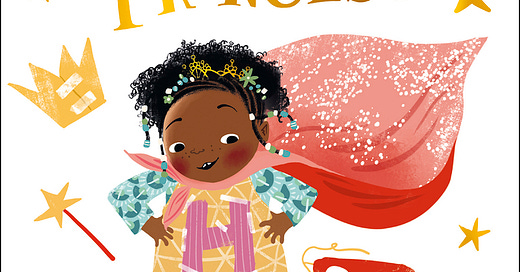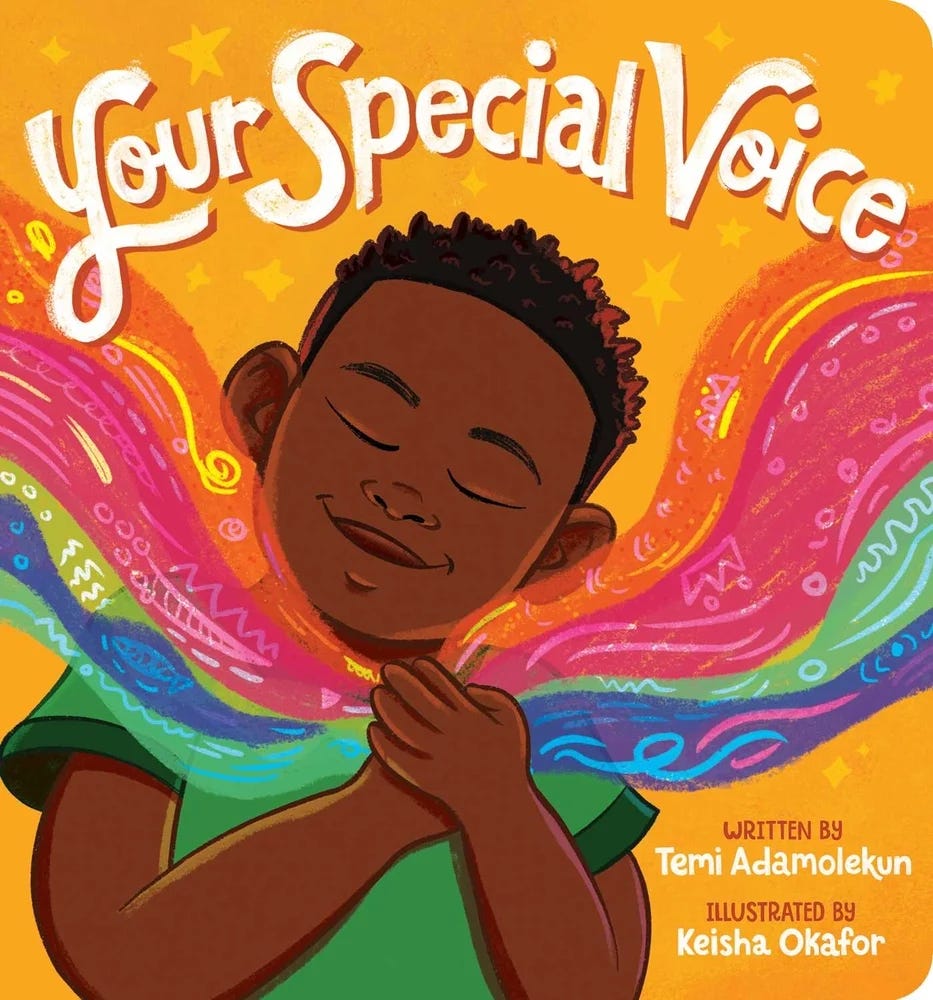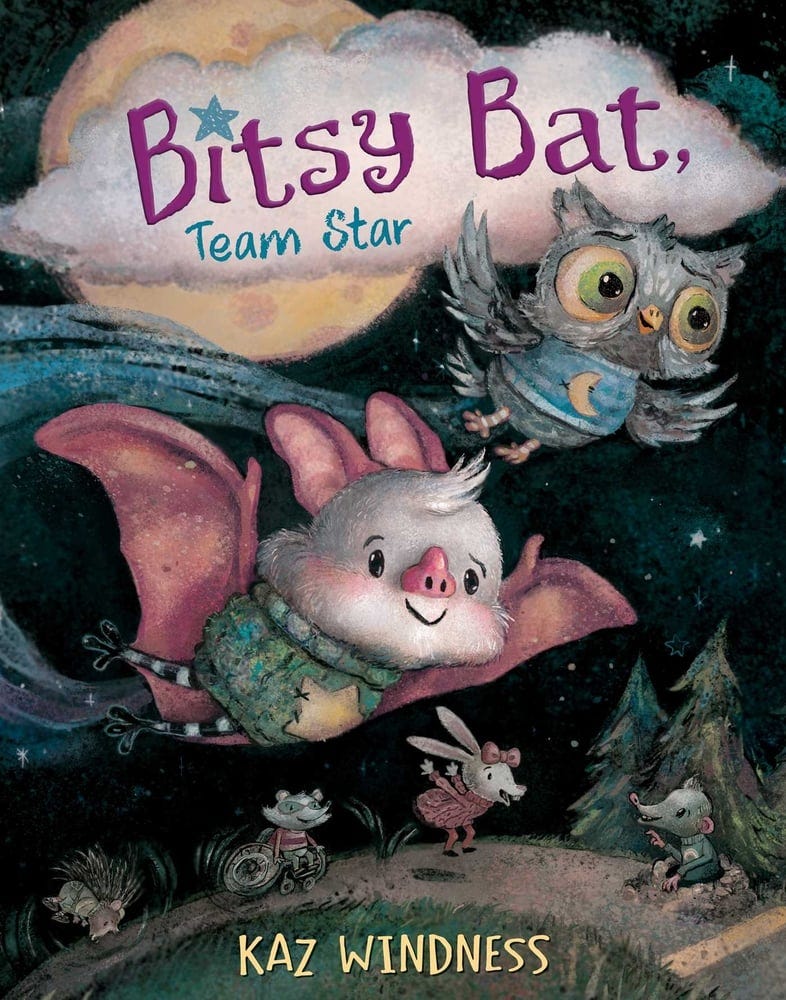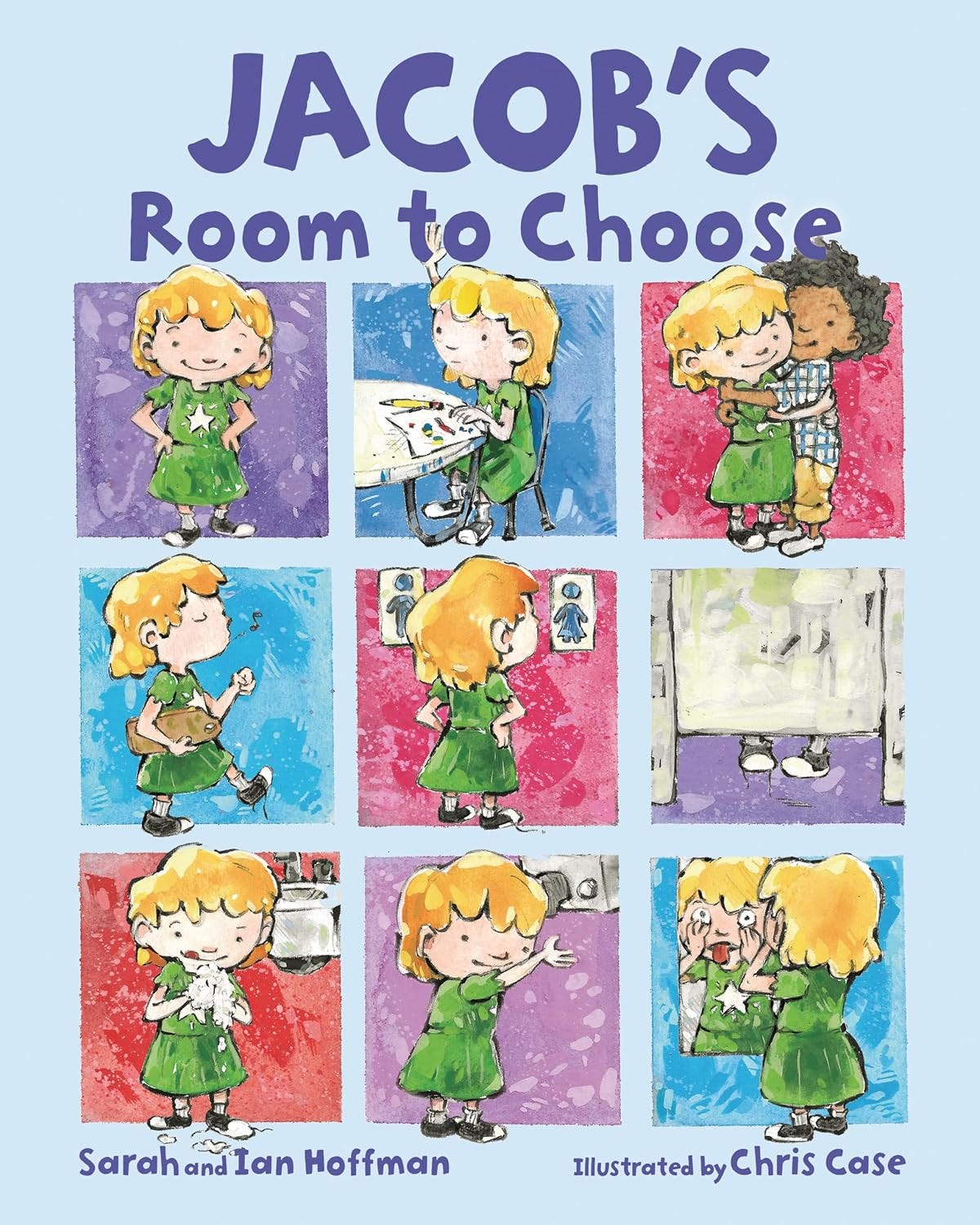I fight for inclusive books because I know it’s the right thing to do. To me, it’s not complicated. We are all inherently valuable and equally important. Stories should reflect all of our experiences. It just makes sense.
And I find that kids tend to agree. When they see experiences unlike their own reflected in books, they might ask a few questions — or they might just take it in and keep reading. Simply exposing kids to different ways of existing is powerful.
But when you pair that exposure with real conversations and real-life connection (like I share here), you start to see just how powerful representation really is.
Here are five moments from just this past week that reminded me why inclusive books matter so much:
1. Before going to the Hands Off protest last weekend, I shared a simple board book with my daughter called Your Special Voice. It showed people of different backgrounds coming together to speak up for what they believe in. That gave her a gentle preview of what to expect that day — a group of people gathering around shared values. Later, we’ll revisit the experience through picture books. Inclusive books prepare kids to become engaged, thoughtful members of their communities.
2. This week, I was looking up studies related to reading to create content on, and I came across a really cool one. Adults who read a short piece of literary fiction scored higher on theory-of-mind tests than those who read nonfiction, popular fiction, or nothing at all. Not a debate. Not a headline. A story. Fiction reached people in a way facts didn’t. Now imagine the potential of inclusive fiction — the kind that opens hearts, challenges assumptions, and builds empathy across difference. Inclusive books can make people more empathetic.
3. This winter, my four-year-old became curious about disability. We read books and played with inclusive toys that helped her ask thoughtful questions. When she was confused about someone’s behavior, we could revisit what we had read and learned together. This week, she referenced the talker (AAC device) used by Bitsy’s friend in Bitsy Bat, Team Star. Inclusive books can help us become more considerate and accommodating to the needs of others.
4. My daughter loves Halima, Superhero Princess. She loved it so much she colored a picture of Halima to decorate our Little Free Library during Black History Month. At the protest last weekend, we spotted street art showing a girl in a hijab. Later in the week, she made a hijab-wearing character in her Sago Mini app and expressed interest in giving our Muslim neighbors gifts for Eid.
Inclusive books can introduce us to people, cultures, and traditions that aren’t our own — and help us care more deeply about our neighbors.
5. A few years ago, my daughter discovered Jacob’s Room to Choose. At the time, she was really into bathrooms (potty training!) and loved the idea of everyone bathrooms. Recently, she pulled it off the shelf again — and now she wants to read the series on repeat. She’s even better with pronouns than I am and has remindede me that we can’t assume someone’s gender.
Inclusive books can help us be better allies
These little moments are why I keep showing up. Why I talk about representation so much. Why I believe inclusive books aren’t just “nice to have” - they’re essential.
Because when kids are given windows into other people’s lives and mirrors that reflect their own, they grow up more empathetic, more curious, more connected. And that shapes not just how they see the world - but how they move through it.
It starts with a story. But it doesn’t end there.
With love,
Elizabeth
P.S. This post continues affiliate links. I earn a small commission through any purchase made through them. Individual titles are linked to Bookshop (support small booksellers), while book lists are linked to Amazon (where I have a more robust collection of curated lists). Thank you very much for your support.










This is so important. Thank you for the books to add to my list for my daughter!
I talk with families about reading time as a space for building connection—and this whole post is proof of that. Books don’t just teach. They build bridges. Love it!